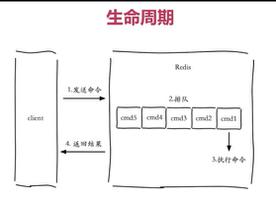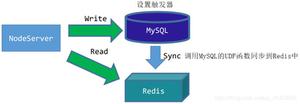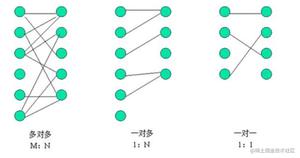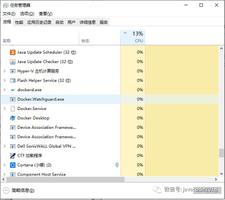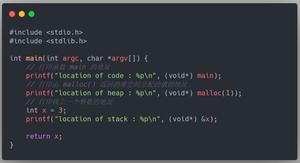Redis实战之限制操作频率

场景
场景1
留言功能限制,30秒内只能评论10次,超出次数不让能再评论,并提示:过于频繁
场景2
点赞功能限制,10秒内只能点赞10次,超出次数后不能再点赞,并封印1个小时,提示:过于频繁,被禁止操作1小时
场景3
上传记录功能,需要限制一天只能上传 100次,超出次数不让能再上传,并提示:超出今日上线
抽离本质
在业务开发的过程中,我们不断的参与各种业务场景的方案设计,往往很容易碰到很类似的场景,只不过当前所属的业务模块不一样,其实这些需求的本质是解决同一个问题,当我们遇到这种场景的时候,我们需要根据自己经验分析抽离出需求的本质问题,实现一个通用的解决方案,这可能就是区别于你是有灵魂的工程师还是cp(copy paste)最强王者吧。
勾画功能逻辑流程图,方便理解:
通过分析上面的需求场景,其实他们有很多相似的地方,我们可以把需求场景抽离成:
- 时间范围X秒内
- 限制操作数Y次
- 超出封印时间Z(秒/具体时间)
- 超出不让再操作,并提示
(最小时间单位用秒:天/小时/分钟都可换算成秒,用秒可以解决更多的场景)
如果把功能抽离成一个通用函数是不是大概是这样:
<?php/**
* 频率限制
* @param string $action 操作动作
* @param int $userId 发起操作的用户ID
* @param int $time 时间范围X秒内
* @param int $number 限制操作数Y次
* @param array $expire 超出封印时间Z ["type"=>1,"ttl"=>过期时间/秒] ["type"=>2,"ttl"=>具体过期时间戳] 二选一
* @return bool
* @throws Exception
*/
public static function frequencyLimit(string $action, int $userId, int $time, int $number, $expire = [])
{
// todo 根据用户操作动作时间范围,进行频率的控制和失效释放
}
解决方案落地
功能需要进行用户时间内,操作动作,操作次数存储,失效过期的清理,这里主角:redis 终于登场了,基于redis特性,incr的原子操作和key 支持过期机制,内存存储的效率优势,可以相对简单灵活并且又高效的完成目的。
通用功能的代码实现:
<?php/**
* 频率限制
* @param string $action 操作动作
* @param int $userId 发起操作的用户ID
* @param int $time 时间范围X秒内
* @param int $number 限制操作数Y次
* @param array $expire 超出封印时间Z ["type"=>1,"ttl"=>过期时间/秒] ["type"=>2,"ttl"=>具体过期时间戳] 二选一
* @return bool
* @throws Exception
*/
public function frequencyLimit(string $action, int $userId, int $time, int $number, $expire = [])
{
if (empty($action) || $userId <= 0 || $time <= 0 || $number <= 0) {
throw new Exception("非法参数");
}
$key = "act:limit:" . $action . ":" . $userId;
$r = RedisClient::connect();
//获取当前累计次数
$current = intval($r->get($key));
if ($current >= $number) return false;
//累计并返回最新值
$current = $r->incr($key);
//第一次累加,设置控制操作频率的有效时间
if ($current === 1) $r->expire($key, $time);
//未超出限制次数先放过
if ($current < $number) return true;
//超出后根据需要重新设置过期失效时间 $current === $number 判断保证只重新设置一次
$type = empty($expire["type"]) ? 0 : intval($expire["type"]);
$ttl = empty($expire["ttl"]) ? 0 : intval($expire["ttl"]);
if ($current === $number && $ttl > 0 && in_array($type, [1, 2])) {
if ($type === 1) $r->expire($key, $ttl);
if ($type === 2) $r->expireAt($key, $ttl);
}
return false;
}
//场景1
/**
* 评论限制
* @param int $userId
* @return bool|string
*/
public function doComment(int $userId)
{
try {
$pass = FrequencyLimit::doHandle("comment", $userId, 30, 10);
if (!$pass) return "过于频繁";
// todo 评论逻辑
return true;
} catch (Exception $e) {
return $e->getMessage();
}
}
//场景2
/**
* 点赞限制
* @param int $userId
* @return bool|string
*/
public function doLike(int $userId)
{
try {
$pass = FrequencyLimit::doHandle("like", $userId, 10, 10, ["type" => 1, "ttl" => 1 * 60 * 60]);
if (!$pass) return "过于频繁,被禁止操作1小时";
// todo 点赞逻辑
return true;
} catch (Exception $e) {
return $e->getMessage();
}
}
//场景3
/**
* 上传限制
* @param int $userId
* @return bool|string
*/
public function doUpload(int $userId)
{
try {
$expire = strtotime(date("Y-m-d", strtotime(+1 . "days")));
$pass = FrequencyLimit::doHandle("upload", $userId, 1 * 24 * 60 * 60, 100, ["type" => 2, "ttl" => $expire]);
if (!$pass) return "超出今日上线";
// todo 上传逻辑
return true;
} catch (Exception $e) {
return $e->getMessage();
}
}
//场景N
编码上可以根据你设计这个通用方案的复杂度进行进一步抽象,如抽象成频率限制的功能类等
总结
对相似的业务场景进行分析,发现本质问题并设计通用的解决方案
基于redis特性,相对简单的实现通用的频率限制功能
以上是 Redis实战之限制操作频率 的全部内容, 来源链接: utcz.com/z/517363.html

